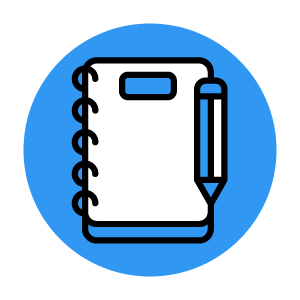Know Thyself: Enhancing Self-Awareness
Larry Lauer, Ph. D.
The competition in FOX’s reality television show American Idol has whittled down to approximately 10 contests. The cream are rising to the top. Yet, some of the most entertaining television occurs during the first few weeks of the show as Simon, Randy, and Paula tour the nation to find pop star talent. Contestants often “bomb” as they attempt to be the next Idol. In fact, many of them sadly cannot hold a note. So, why would they put themselves out there on national television for my Simon to remark “don’t quit your day job”? For some it is about getting attention. For many others, however, they truly believe they can be the next Idol. Yet their singing is atrocious. Clearly they are lacking in self-awareness.
Similar to talented singers and musicians, great athletes often have tremendous self-awareness. They have a clear understanding of their strengths and weaknesses. They know when they are attempting to do too much such as using a weaker skill in critical moments of a game. Would Shaq shoot 12 foot jump shots in the last two minutes of a game? Not likely. He would drive to the hoop and use his size and strength.
Great athletes also are realistic and recognize their capabilities and limitations. This does not mean they give up on their dreams or do not try to get better. Instead, they work with and on their limitations. In practice great athletes work hard to overcome limitations such as only being able to use one type of serve or only being able to dribble with the dominant hand. And, during games they develop game plans and strategies to use their “weapons” or strengths against an opponent’s weakness. That is why you will see many tennis players like Steffi Graff run around their backhand to hit inside-out forehands; they are using their “weapon.”
How can you enhance your self-awareness?
- Listen to Yourself – be aware of your self-talk during competition. Is it positive and productive or negative and unproductive? Also, how do you coach yourself when learning skills or tactics?
- Listen to & Accept Feedback – sometimes the feedback that coaches, parents, and teammates give us is not fun to hear. However, to be your best you most learn from those around you.
- Know Your Blind Spots – talk to others about the things you do that hurt your performance (a hitch in your swing) or relationships with others (a tendency to interrupt others when talking). This requires having a tough skin, but what you can learn helps you avoid acting unintentionally.
- Watch Video – watching video of past performances can open your eyes whether it is during a slump or just to become more aware of your patterns of behavior in competition. When I watch video of my clients I will spend time looking at their body language, eyes, and routines especially before and after big points and critical changes in momentum.
- Set Goals – spend time thinking about what you want versus what others want for you. What are your goals? These goals then take top priority in training.
- Look for Signs During Competition – when and how do you get down on yourself? What are trouble spots when your performance drops? Knowing this allows you to develop a plan to overcome it.
- Post-Practice and Post-Game Reflection – after every game and practice take a few minutes to evaluate what happened in a journal. Ask yourself, did you achieve your goals? Did you follow the game plan? What went well and not so well? What should work on in practice based on this performance?




